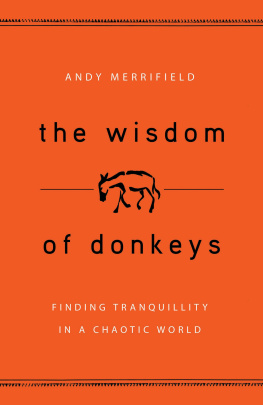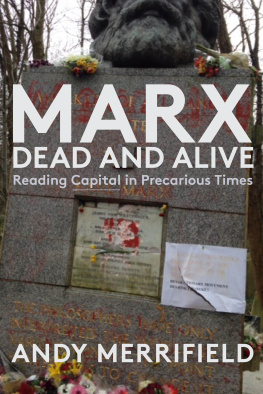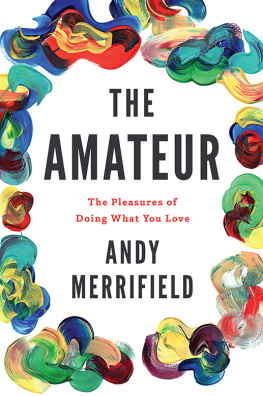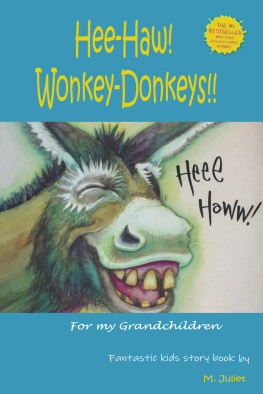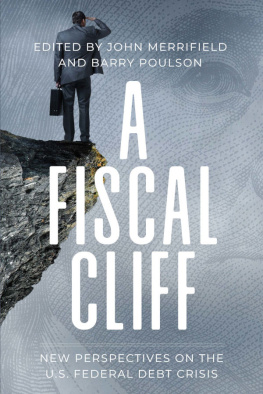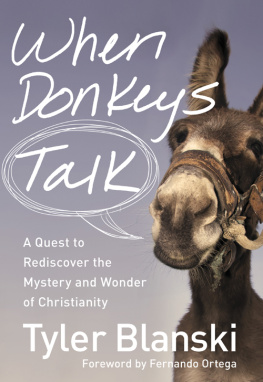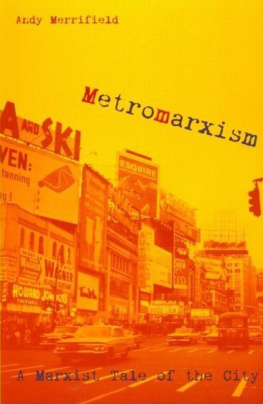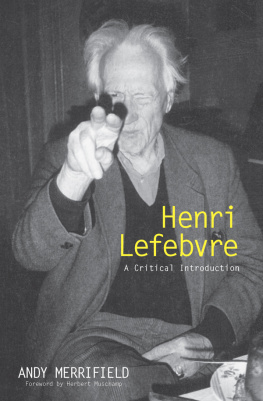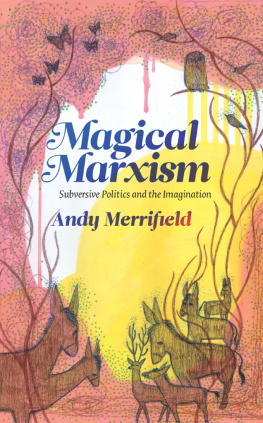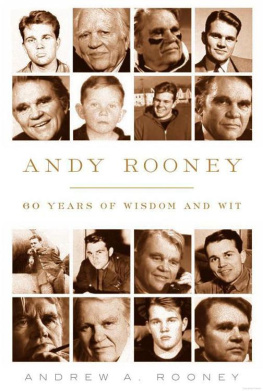Andy Merrifield - The Wisdom of Donkeys
Here you can read online Andy Merrifield - The Wisdom of Donkeys full text of the book (entire story) in english for free. Download pdf and epub, get meaning, cover and reviews about this ebook. year: 2009, publisher: Bloomsbury, genre: Detective and thriller. Description of the work, (preface) as well as reviews are available. Best literature library LitArk.com created for fans of good reading and offers a wide selection of genres:
Romance novel
Science fiction
Adventure
Detective
Science
History
Home and family
Prose
Art
Politics
Computer
Non-fiction
Religion
Business
Children
Humor
Choose a favorite category and find really read worthwhile books. Enjoy immersion in the world of imagination, feel the emotions of the characters or learn something new for yourself, make an fascinating discovery.
- Book:The Wisdom of Donkeys
- Author:
- Publisher:Bloomsbury
- Genre:
- Year:2009
- Rating:3 / 5
- Favourites:Add to favourites
- Your mark:
- 60
- 1
- 2
- 3
- 4
- 5
The Wisdom of Donkeys: summary, description and annotation
We offer to read an annotation, description, summary or preface (depends on what the author of the book "The Wisdom of Donkeys" wrote himself). If you haven't found the necessary information about the book — write in the comments, we will try to find it.
The Wisdom of Donkeys — read online for free the complete book (whole text) full work
Below is the text of the book, divided by pages. System saving the place of the last page read, allows you to conveniently read the book "The Wisdom of Donkeys" online for free, without having to search again every time where you left off. Put a bookmark, and you can go to the page where you finished reading at any time.
Font size:
Interval:
Bookmark:
THE WISDOM OF DONKEYS
THE Wisdom OF Donkeys
Finding Tranquility in a Chaotic World

ANDY MERRIFIELD

Copyright 2008 by Andy Merrifield
All rights reserved. No part of this book may be
used or reproduced in any manner whatsoever without
written permission from the publisher except in the case
of brief quotations embodied in critical articles or reviews.
For information address Walker & Company,
175 Fifth Avenue, New York, New York 10010
Published by Walker & Company, New York
Distributed to the trade by Macmillan
All papers used by Walker & Company are natural, recyclable products made from wood grown in well-managed forests. The manufacturing processes conform to the environmental regulations of the country of origin.
LIBRARY OF CONGRESS CATALOGING-IN-PUBLICATION DATA HAS BEEN APPLIED FOR.
eISBN: 978-0-802-71872-3
Visit Walker & Company's Web site at www.walkerbooks.com
First U.S. edition 2008
1 3 5 7 9 10 8 6 4 2
Typeset by Westchester Book Group
Printed in the United States of America by Quebecor World Fairfield
For Corinna
Contents
I CANT STOP thinking about Schubert. Piano sonata number 20. Its haunting melancholy is lodged in my brain as I pedal toward the sky. Schubert's slow, precise, sparse cords syncopate with my own slow pumping and deep gasps for breath. I'm listening to the music of greenness, no radio necessary. The somber sounds are surprisingly uplifting in the afternoon sunshine. I'm riding a bike near my home in France's Auvergne region, up a high mountain pass. I ride when it isn't too cold, before the snow arrives. The narrow route wends its way up and up through tiny hamlets made up of stone cottages, abandoned barns, the odd menacing dog, and clucking hens: Le Chambon, Le Ban-cillon, and Channat. These are real places, at least they seem real to me, with a temporality that ticks in a Middle Age time warp.
It's hard going up the mountain, easy to lose traction on dry gravel paths splattered with cow dung. Yet I'm rewarded at the summit with a sweeping vista across the valley, and I can see the Allier River down below. Hills undulate and interpenetrate, float away in the misty warmth. The peace is serene, the silence dulcet music. The meadows are a natural auditorium; its acoustics are razor-sharp. Around the bend I go. A meadow opens itself to the world. The music inside me is a sonata, but the landscape outside is a symphony. Up here Schubert comes into his own, Franz Schubert, who created masterpieces while still a teenager. He died at such a tender age, at thirty-one, already fifteen years my junior. I stop and dismount against a tree, a particular tree, the tree around the bend. I've spent hours stopped at this spot, just looking, staring across the valley, surveying planet Earth. The slope is steep, an almost-45-degree gradient, and the grass below is worn and full of tufts and bracken. For half the year it's home for a dozen or so chocolate-colored and turtledove-gray donkeys.
There's something amazing about watching donkeys graze in the middle of nowhere. It's a kind of therapy, even a sort of meditation. You can both lose and find yourself. An Australian proverb says that when you watch donkeys in a meadow, don't forget your chair. You can observe them for hours on endit's hypnotic and addictive. It's hard to drag yourself away once you're smitten. All you hear is a faint rustle as they shuffle through the grass and bury their heads in the earth, chomping away. This faint rustle is exclusively donkey, their own private language game, an utterly different sound from a flock of sheep or goats, and different again from a field of horses or cows. Donkeys are both grazers and browsers: their teeth and lips let them graze near to the ground, trawling the earth close-up for food; their narrow muzzles allow them to browse with great sensitivity, foraging quality rather than just quantity.
Donkeys' legs are beguiling: their knees and shanks, fetlocks and hocks, cannon bones and pastern joints are so dainty and graceful, so slender. Horses' legs look clumsy in comparison. It's unbelievable the load these little legs can bear, unimaginable for any human. No horse could ever pace up a narrow mountain pass carrying a donkey's load, could do it so assuredly or confidently, so reliably or patiently. Horses are faster, yet have much less endurance than donkeys, and are nowhere near as agile. They're edgier, too, especially in tight situations. They bolt whereas a donkey freezes. You can usually cajole an anxious horse to do things against its better interests, frighten them into galloping along hazardous, unsafe routes. Not so with donkeys, who have a highly developed sense of self-preservation. Thus a donkey's perceived stubbornness.
One of a donkey's best-known characteristics is its bray. This noise can really carry, sometimes for a distance of two miles. They bawl out and the bray echoes across the airwaves, apparently in seven different tonalities, from partial eeyore calls to full-repertoire braying; donkeys can vocalize on both inward and outward breaths, expending a massive amount of energy doing so. In the countryside, down in any valley, a donkey's bray will rattle neighboring villages. Donkeys bray when they're happy or unhappy, when they're communing with a mate, when they're feeling lonesome, or when they know food is near and about to arrive. Occasionally, they'll bray just for the hell of it, yell at the top of their voices, let it all go for a while, for fun. Then they'll roll about on their backs in the earth, do it together as a group, take a soil bath in Mother Nature.They're gregarious animals and like company; they don't seem to mind me here, the curious uninvited guest, the small-eared visitor who has come up the mountain to learn.
At first the donkeys paid me little attention, giving only occasional, disinterested glances in my direction, too preoccupied with their meal and their quiet thoughts. After several weeks of returning to the same patch, some eventually ventured up the slope. With upright, inquiring ears and curious, petitioning eyes, they'd give me melancholy stares. They seemed so utterly calm and gentle. Under their frizzy fronts and impenetrable gaze, behind their dark, nonjudgmental eyes, I sensed deep philosophical thoughts as well as a tacit fraternitythe fraternity of a chance meeting on a summer's afternoon, the vulnerability of two finite beings in illicit rendezvous.

Time slows down amid donkeys. In their company things happen quietly and methodically. It's hard to forget their innocent gaze. It's a calm that instills calm. Your mind wanders, you dream, you go elsewhere, yet somehow you remain very present. Milan Kundera says in his novel Slowness that speed, the demon of speed, is often associated with forgetting, with avoidance, and slowness with memory, with confronting. We move slowly when we want to listen to ourselves, to others, and to the world around us. We move slowly when we want to confront ourselves. If only we could slow down! The rush of contemporary life overwhelms our ability to observe, to hear, to step back and wonder, and to meditate. Our society, Kundera says, wants to blow out the tiny trembling flame of memory. The birds are still chirping, yet the sun is disappearing now over the hills. There's a far-off tractor in a field surrounded by mounds of hay bales. The rush of contemporary life is a universe away these days.
Font size:
Interval:
Bookmark:
Similar books «The Wisdom of Donkeys»
Look at similar books to The Wisdom of Donkeys. We have selected literature similar in name and meaning in the hope of providing readers with more options to find new, interesting, not yet read works.
Discussion, reviews of the book The Wisdom of Donkeys and just readers' own opinions. Leave your comments, write what you think about the work, its meaning or the main characters. Specify what exactly you liked and what you didn't like, and why you think so.

